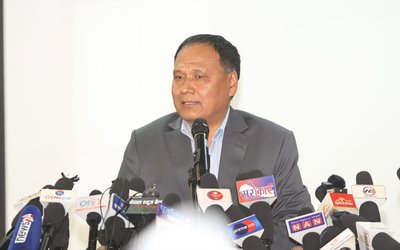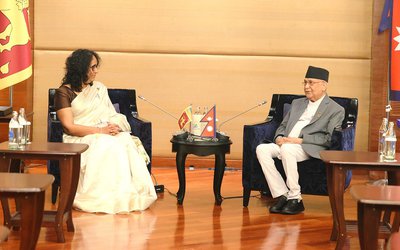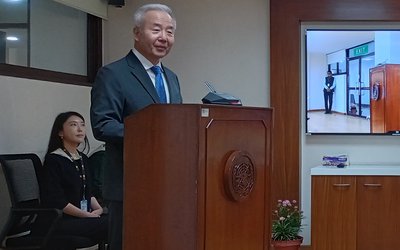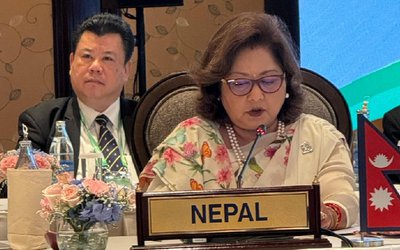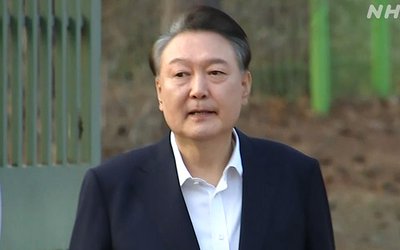
With the expertise and knowledge on Nepal’s heritage sites, Germany can extend a valuable support in rebuilding the sites for heritage conservation. Almost two decades ago, many of today’s heritage sites of Bhaktapur were retrofitted.
At a time when Nepal government is seeking foreign support to rebuild the heritage sites, Nepal can request Germany to use their expertise. In a recent press meet, ambassador of Federal Republic of Germany Matthias Meyer also expressed Germany’s willingness to provide support.
“Germany is willing to support reconstruction of temples and heritage sites in Bhaktapur City devastated by the two earthquakes,” said German Ambassador to Nepal Meyer.
With the government calls for relief operation, many German non-governmental organizations came to work in Nepal. “Since our nongovernmental organizations have been working now in humanitarian crisis, Germany will be happy to be part of reconstruction of temples and heritage sites of Nepal,” said Ambassador Meyer.
Immediately after the earthquake of 25 April 2015, the German Federal Foreign Office and the German Federal Ministry for Economic Cooperation and Development made funds available for humanitarian assistance in a total volume of 4.5 million Euros.
According to a press release issued by Embassy of Germany, a German Red Cross and Federal Agency for Technical Relief fight funded by Federal Foreign office, arrived in Kathmandu on 29th April. The aircraft transported tents, blankets, hygiene kits and two urgently needed water purification units to the disaster zone. With the help of these two units, up to 30,000 people are provided with fresh drinking water every day.
In addition, German Humanitarian Aid supported UN-OCHA, immediate relief activities of the World Food Program (WFP) and several German NGOs, which were already active through local partners in Nepal.
Immediately after the disaster, a great number of German non-governmental organizations offered support to the Nepalese people. Among them are many organizations with long-standing cooperation projects in Nepal as well as medical emergency and disaster response teams. “They have provided a substantial amount of relief goods to Nepal, such as tarpaulins, kitchen sets, water purification systems etc.
The German Embassy organizes a regular NGO roundtable to enable smooth cooperation with the overall relief efforts. After taking part in the regular program, AWO International e.V the organizations reached to nearly 30000 people affected by the earthquake. “We have dispatched first lot of 22 heavy trucks carrying qualitative relief materials (hygiene and dignity kits, tarpaulins and printed usages messages, mattresses and blankets, cooking equipment, clothes and other non food items) for 3200 households to Sindhupalchowk. The consignments have already reached in the districts, they will be distributed in Fulpingkatti, Tatopani, Jethal, Thumpakher and Thulo Pakhar VDCs in coordination with local authorities,” said Fleix Neuhaus, country director.
Similarly, some German INGOs have also been working in sanitation sector. Mathias Anderson, head of mission of arche noVa, said his organization has been working to improve hygiene conditions of people living in the earthquake devastated area.
Other German INGO Welt Hunger Hife has been working to provide seeds to the farmers so that they can grow foods. “With our local NGO partners, we have been working to find out ways to provide seeds to the affected population,” said Surendra Gautam, program manager of the organization.
German Development Cooperation immediately made available contributions of more than 150,000 Euros for disaster relief, such as medical supplies, blankets and tents etc. This was out of the ongoing cooperation program.
To assist Nepal in its mid- and long-term rehabilitation efforts, the German Government announced 30 million Euros for a substantial support program. The regional focus of this program will be in Dhading, Nuwakot and Rasuwa districts as well as the city of Bhaktapur.
According to a press release, the intended areas of German support will focus on health sector, rebuilding infrastructure and energy sector. Under the health sector support, the program includes rebuilding hospitals in the worst-hit districts and smaller health posts especially in remote areas, as well as procuring medical equipments and supplies. In addition, transitional housing for the rainy season and seeds will be provided in order to help people meet their own needs.
Similarly, rebuilding infrastructure includes homes and municipal buildings and water supply system. Energy sector support includes rehabilitation of the central load dispatch center in Kathmandu and necessary repairs at hydropower plants, transmission lines and substations damaged by the earthquake.
The German Recovery and Rehabilitation programs will be coordinated by the German Embassy and implemented by KfW and GIZ in close cooperation with the Government of Nepal.
- IME GROUP: Expands Into Paper Industry
- Mar 24, 2025
- CPN UML: Instigated By India
- Mar 23, 2025
- ADB’S CHIEF ECONOMIST: Nepal Reduces Poverty
- Mar 11, 2025
- FM DR. DEUBA: A Successful Visit
- Mar 11, 2025
- MD GHISING: Target Of Personal Grudge
- Mar 09, 2025

